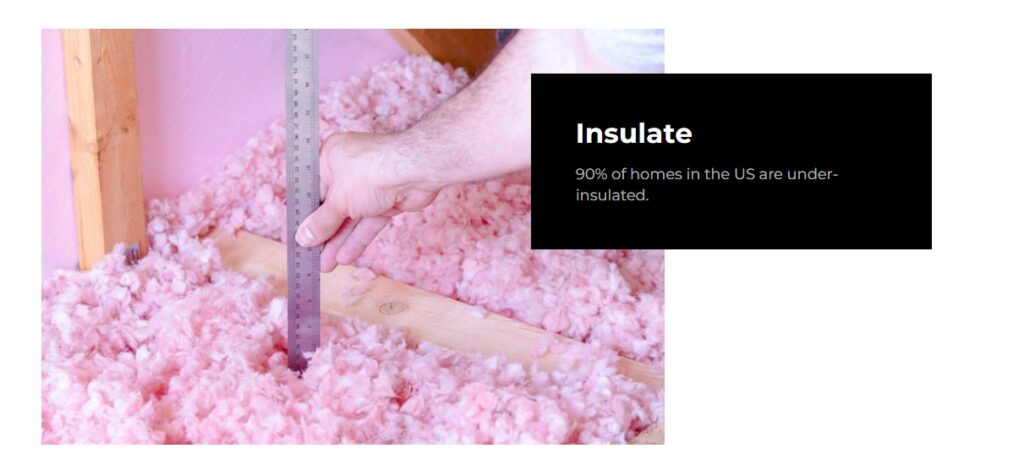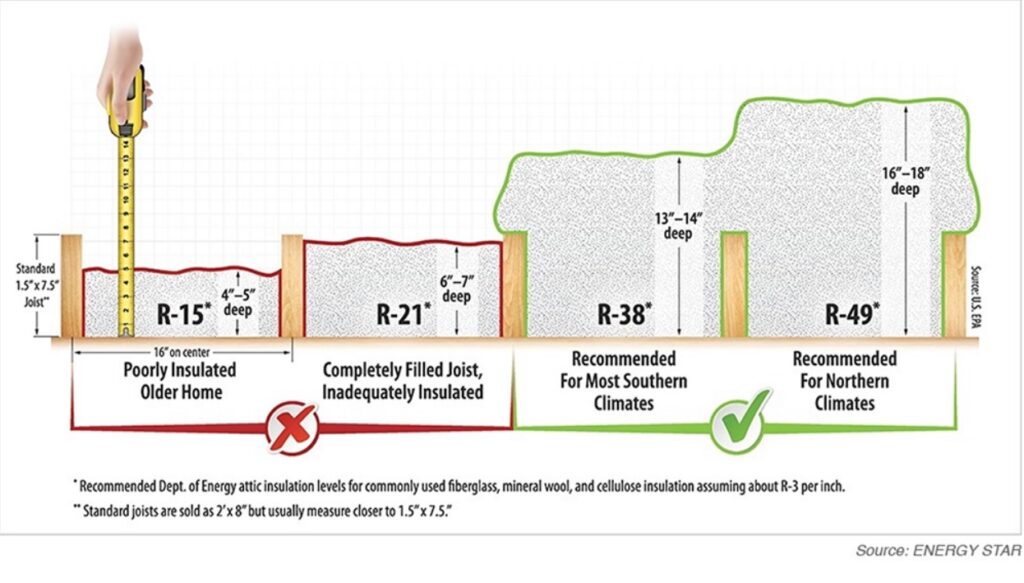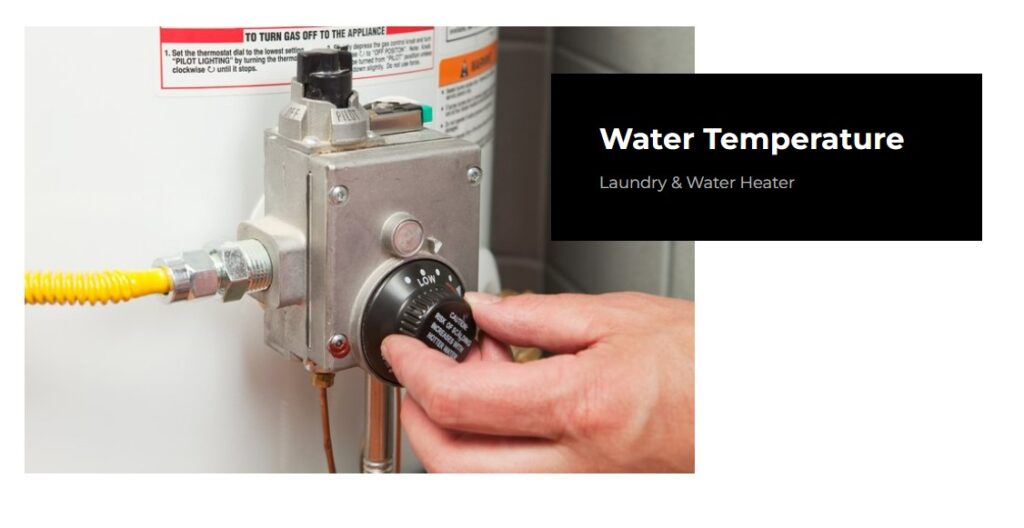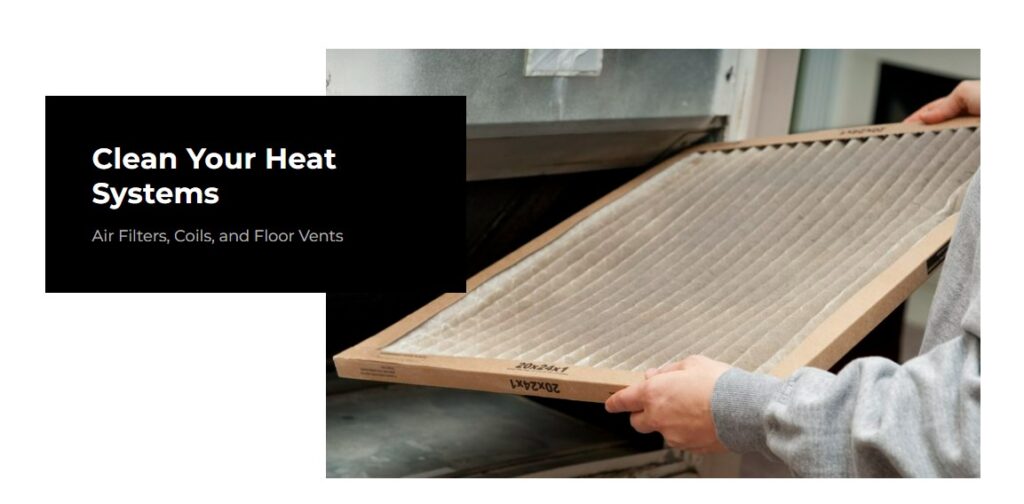3 Ways To Boost Energy Efficiency In Your Home
Idaho winters can be cold and although your home is warm and cozy you don’t want to be shocked when you open your electric bill. Here’s how you can stay warm and cozy this winter without breaking the bank.
As local Idaho real estate professionals, we’ve learned a thing our two about keeping houses warm in the winter. If you live in Idaho or are curious about living here in the Pacific Northwest one day, follow these tips to improve your home efficiency AND make your place more valuable when it comes time to sell. It’s what we like to call a win-win!
1. Insulate.

This might seem like a no-brainer, but time and time again we find that homes are either missing insulation or simply don’t have the right stuff. According to a recent Boston University study, almost 90% of homes in the US are under-insulated. Crazy!
If you are in the majority, we recommend taking a quick look at the insulation in your attic (checking the walls tends to get messy). Before heading up to do your inspection, grab a tape measure. Once you have reached the attic, here are the two things you should check:
Step 1: Check the condition and age of your insulation
Step 2: Check the depth of your insulation using a tape measure

As PNW residents, we need the most insulation in our attics. The obvious sign of an under-insulated attic is whether or not you can see the joists. This is usually the result of poor construction or fibers settling over time. If the joists are hidden and are not showing, use that tape measure to wiggle down to the attic side of your ceiling below. Take your measurement in inches, then multiply this depth by R-3.
For Example:
15 inches of insulation x R-3 = R-45
Why It’s Important
Insulation breaks down over time and everyone knows that heat rises. If your home is more than 10 years old, you are likely losing heat through your ceilings and it is now time to add more.
Having a properly insulated home will immediately cut down your electric bills and make winters a lot more bearable. This is also a great selling point when marketing to prospective buyers because it gives a new owner confidence that you have been diligent, taking care of all the little things along the way.
2. Adjust your water temperatures.

Laundry
Did you know almost 90% of the energy used by your washing machine goes toward heating the water? Washing with colder water can save up to $200 per year and extend the lifespan of your machine!
Water Heater
Dropping the preset temperature of your water heater could cut the cost of your electric bill by up to 10% each month. According to the Department of Energy and energy.gov, water heaters should be kept at 120, but many come preset to keep your water at a scalding 140 degrees.
Maintenance Tip:
Flush the sediment from the bottom of your water heater once per year. Over time, small pieces of debris can build inside the tank, especially if you live in an area with hard water. If left unchecked, this sediment will start to create separation between the water you’re heating and the heat source itself, forcing your unit to work harder and use more energy to get the job done.
If you don’t take the time to flush sediment from your water heater, it will harden and become thicker inside of your tank, leading to erosion that ultimately causes expensive water leaks. Be smart and do the easy maintenance so you never lose hot water in the winter.
For help draining your water heater, refer to your owners manual or contact a local plumber.
3. Clean your heat systems.

Heat systems get clogged when we allow dirt, dust, and debris to stack up. This is a very normal thing that happens regardless of how clean you keep your home, so don’t worry if dirt builds up often. To keep your system healthy and running smoothly, we recommend regularly cleaning out your air filters, coils, and floor vents.
Wait, are you telling me I need to clean out my floor vents?
You heard it right! This might seem little or insignificant, but cleaning your floor vents actually opens up more space for air to flow through your ducts, reducing something called “static pressure.” Static pressure measures the resistance in your air ducts and heating components, and this measurement is one of the most important factors in HVAC design. It determines how much energy is needed to push air into each room of your home, kind of like the difference you feel between drinking from a stir straw instead of a reusable, standard-sized straw.
And if we take one more step to reduce static pressure, you will also want to keep your air vents open in every room of the house. Many people don’t know this, but closing your air vents will throw off the delicate balance between all of your heat “zones” which actually wastes more energy than you might realize.
Baseboard Heat
Be sure to keep the surface and coils dust-free. If you have central heating, wipe out the vents and make sure they are open, too.
Conclusion
Well, there you have it! These tips will help you save energy and preserve a few of the major appliances needed to keep your home comfortable through the winter. Staying on top of these simple maintenance hacks is a great way to prevent expensive and untimely replacement surprises, giving you more peace of mind and a stronger position for negotiating a higher sales price when it comes time to sell your home.
Idaho is a wonderful place to live and we hope this advice can save you money so you have more freedom to enjoy winters here in the Treasure Valley. There are countless adventures waiting just outside your door, and regardless of the activities you choose, you should always have a warm house waiting when you return.
Here’s to all the good times ahead!
Your friends at the Mike Brown Group
BONUS SAVINGS TIP…
Use power strips for electronics & unplug them when not in use.
Ever heard of phantom power draws? It’s when your devices continue to use electricity even when they aren’t technically “on.”
Things like phone chargers, coffee pots, and other common electronics all use power to keep electricity on hand and at the ready. By adopting this power strip habit, you can easily reduce phantom power draws and cut down your total electric bill. Little things can really add up!


